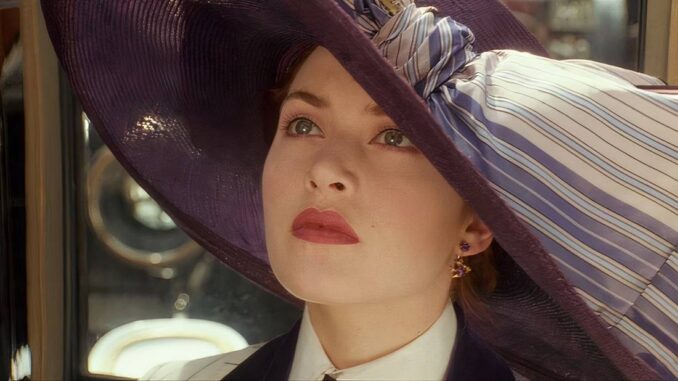
The Iceberg and the Infinite Scroll: When a Cinematic Behemoth Finds New Life on the Digital Tide
The headline hits like a surprise wave: "James Cameron Epic Period Drama Breaks Records on Free Streaming." It’s a pronouncement that, on the surface, seems almost anachronistic, a collision of cinematic titan and democratic digital access. James Cameron, the maestro of spectacle, the auteur whose films demand the largest screens and the most thunderous sound systems, seeing one of his gargantuan creations achieve unprecedented reach not through a box office surge, but through the infinite scroll of a free streaming platform. This isn't just a quirky news item; it's a profound illustration of the evolving landscape of media consumption, the enduring power of timeless storytelling, and the curious alchemy of nostalgia meeting accessibility.
For decades, the name James Cameron has been synonymous with the pinnacle of theatrical experience. His films are not merely watched; they are events. They are designed to engulf, to overwhelm, to transport audiences en masse to alien worlds or sunken luxury liners. The epic period drama in question, of course, can only be Titanic. Originally released with a budget as monumental as its subject, it was a film that redefined cinematic ambition. Its theatrical run in the late 90s was a phenomenon: a three-hour-plus historical romance that captured the zeitgeist, filling cinemas week after week, month after month. It wasn't just a movie; it was a cultural moment, a shared experience etched into the collective memory of a generation. The shuddering impact of the iceberg, the sweeping grandeur of the ship, the ill-fated romance of Jack and Rose – all were meticulously crafted for the silver screen, for the communal gasp and the shared tear in a darkened auditorium.
Yet, paradoxically, it is this very film, a creature of the grandest scale, that now finds itself charting new territory on the most unassuming of platforms: free streaming. The notion of a film designed for IMAX being consumed on a smartphone or a laptop, interrupted perhaps by a commercial or the incessant pull of notifications, seems almost sacrilegious to the purist. But therein lies the illustrative power of this phenomenon. Free streaming eradicates barriers. There’s no ticket price, no subscription fee, no rental cost. It’s an open invitation, a digital embrace that says, "Come as you are, watch as you please."
What explains this astounding resurgence, this record-breaking performance for a film decades old? Firstly, there’s the sheer accessibility. For a generation who might have been too young for its initial theatrical run, or for those who never quite got around to a rewatch, free streaming offers a frictionless entry point. The movie, once a deliberate choice requiring effort and expenditure, now floats effortlessly into their digital feeds, an omnipresent option. This democratic access invites a casual rediscovery, turning an event into an everyday possibility.
Secondly, and perhaps more crucially, lies the enduring power of the narrative itself. Cameron’s epic period drama isn't just about special effects or historical recreation; it has a beating heart of universal human experience. It's a story of class struggle, forbidden love, human hubris against nature's indifference, and the raw instinct for survival. These themes are timeless, transcending decades and cultural shifts. For those who grew up with it, it's a powerful wave of nostalgia, a comfort watch that transports them back to a simpler time, or to the intensity of their first viewing. For newer audiences, it’s a revelation – a sweeping, emotionally resonant story that cuts through the noise of contemporary content, proving that a well-told tale, even if it spans three hours, still holds an unbreakable grip.
The "breaks records" aspect of the headline is particularly illustrative of the sheer volume of passive, yet engaged, consumption happening in the digital age. It speaks to millions of individual streams, aggregated into a collective behemoth that rivals, and in some cases surpasses, the reach of initial theatrical runs. It suggests that content, once released, isn't truly "over." It enters a new lifecycle, perpetually discoverable, perpetually rewatchable, its cultural footprint expanding with each new technological iteration.
In essence, James Cameron's epic period drama finding record-breaking success on free streaming is a vivid illustration of a cultural confluence. It's the enduring might of a master storyteller's vision, proving that authentic emotion and grand scale resonate irrespective of the medium. It's the democratizing force of the internet, tearing down paywalls and making cinematic history available to all. And it's a testament to the insatiable human appetite for powerful stories, tales that, like the ocean itself, continue to fascinate, engulf, and flow through the currents of our collective consciousness, finding new shores with every digital tide. The iceberg may have sunk the ship, but the story, now untethered, sails on in perpetuity across the infinite scroll.